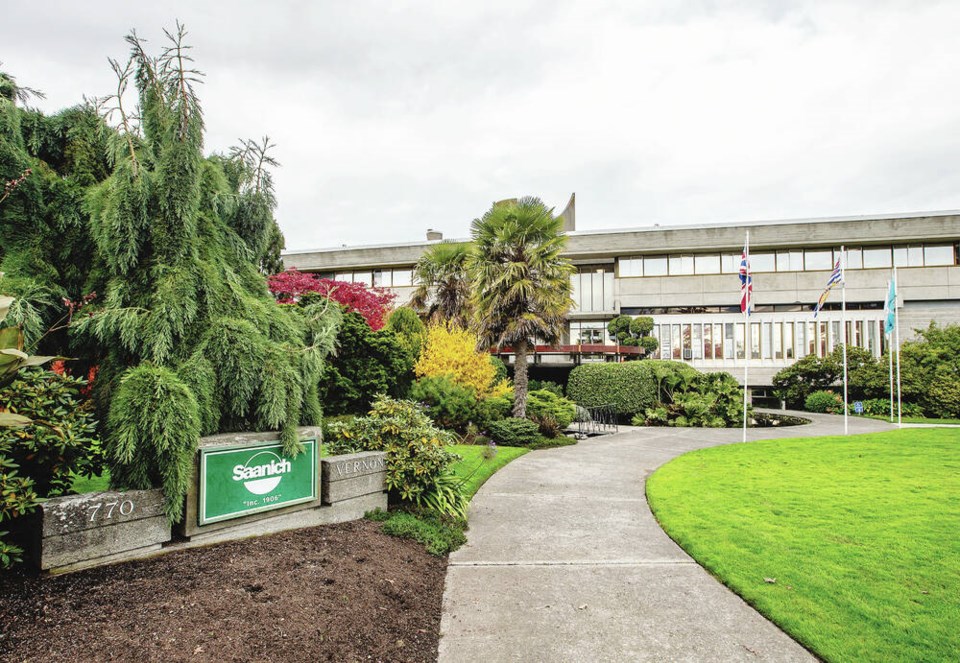Saanich is accepting applications for a new program aimed at encouraging electrification in large multi-unit residential complexes and commercial buildings.
The Climate Action Tax Exemption Program is the first of its kind in B.C., the municipality said, and provides incentives for replacing fossil-fuel space heating and domestic hot-water delivery with electric systems.
Making the change in a condominium or rental-apartment building can lead to a municipal tax exemption of up to 100 per cent of project costs — after other rebates are factored in — for a maximum of 10 years.
In commercial buildings, owners can receive a tax exemption valued at 50 to 80 per cent of project costs for a maximum term of three years. Eligible participants must be accepted into a provincial incentive program such as CleanBC Better Buildings.
“We have seen tremendous acceleration in the number of fossil-fuel to heat-pump conversions in single-family homes in our community,” said Saanich Mayor Dean Murdock. “To date, these types of upgrades in larger, more complex buildings have been almost non-existent.”
The municipality said buildings are the second highest source of greenhouse-gas emissions in Saanich.
“Switching to electric heating and hot-water systems significantly reduces GHG emissions because 98 per cent of B.C. Hydro’s power generation comes from clean or renewable resources,” the municipality said. “And if that new electric heating system is a heat pump, this also provides efficient cooling, which protects its occupants from dangerous heat waves.”
To meet Saanich’s target of reducing GHG emissions by 50 per cent by 2030, dozens of large buildings will need to electrify.
The municipality said incentives and supports help overcome barriers related to costs and low consumer awareness.
A webinar on the new program will be held on Feb. 28 from noon to 1 p.m. To register for the webinar, or for more information, visit saanich.ca/climatetaxexemption.
>>> To comment on this article, write a letter to the editor: [email protected]



